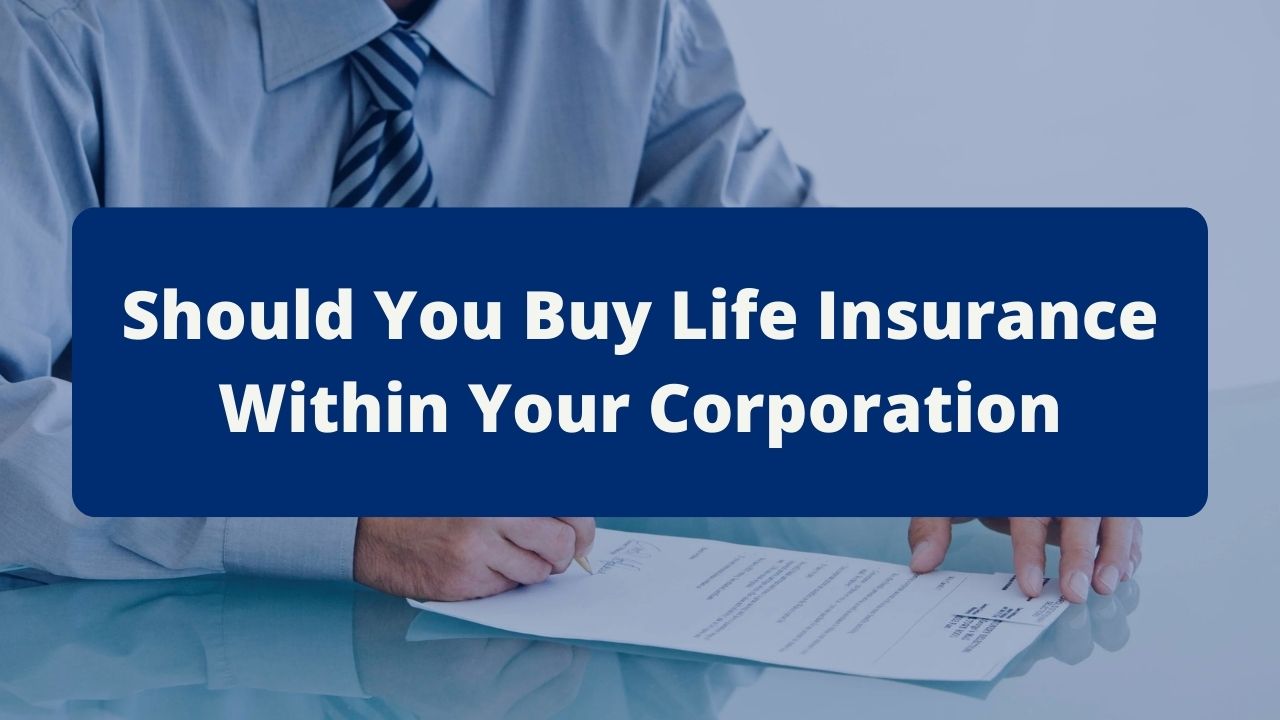Should You Buy Life Insurance Within Your Corporation
Are you a business owner, and it has been suggested to you to buy life insurance in your corporation? Well, we can help you. Are you worried about the potentially high taxes your corporation may be subject to upon your passing?
I’m going to introduce myself, I’m Ivan Cons, and I have been in the Life Insurance industry for 32 years. As an independent broker I, along with my team, can help you find the best company and rate that is most suitable for you. You do realize, that the government could take a large percentage of your corporate wealth upon your demise? If you plan appropriately, there are ways to mitigate this.
Did you know that there are distinct tax advantages to purchasing life insurance in your corporation?
One of the principal advantages is that the life insurance benefit passes on to your estate though the Capital Dividend Account, an account within your corporation, and the bulk of the benefit are paid out tax free to your heirs. This is a huge benefit available to you as a shareholder of a corporation. In fact, to avoid large corporate taxes on death many shareholders will purchase a life insurance policy in their corporation using some of their passive assets to pay the premium. Rather than having to pay onerous corporate taxes on death, this strategy drastically reduces the amount of taxes that will be paid as the life insurance benefit is largely tax free to the estate.
What type of policy is most suitable?
Now that you have come to the realization that this strategy does make sense, the question is to determine which type of policy would be most suitable to you? There are two specific types of contracts.
One is Whole Life and one is Universal Life. Whole life is a long-standing traditional policy that pays a predetermined dividend to policy holders each and every year. That dividend comes from the Participating fund of the insurance company, and the dividend is largely determined by company expenses, mortality, and investment return.
There is no management or decision making on behalf of the policyholder. The dividend scale is determined every year and your percentage is credited to your policy.
Universal Life insurance policies require a more hands on approach. The policy holder selects the investment choices which range from GIC’s with fixed terms and an array of mutual funds.
This policy must be managed in the same way one would manage an investment portfolio, and should be reviewed frequently based on market circumstances that affect interest rates and mutual funds. One interesting note that relates to Universal Life, is that the cost of insurance can be guaranteed for life, paid up within ten or twenty years or variable (non-Guaranteed) based on market return.
The key to all of this is to determine which policy will leave the most tax-free dollars to your estate. It is always advisable to compare the two product and their respective costs of insurance as they do not all distribute tax free dollars to your estate equally.
You need to know which product to select depending on your circumstances, such as age, health status and financial objective. Far to often, people do not compare and that can lead to a very costly mistake. Speaking of comparing, it is important to look at the results of several insurance companies as they do not all perform equally under similar circumstances. Some insurance companies offer built in guarantees that other companies do not have. An experienced broker can help you navigate through all of this.
If you are someone who would like to explore this strategy more in depth, we are here to help you answer any questions. Contact us today!
Also Read:
1. When are Life Insurance Premiums Tax-Deductible?
2. Do I need life insurance in my fifties?
For more information, please do not hesitate to contact me.
Let’s talk.






